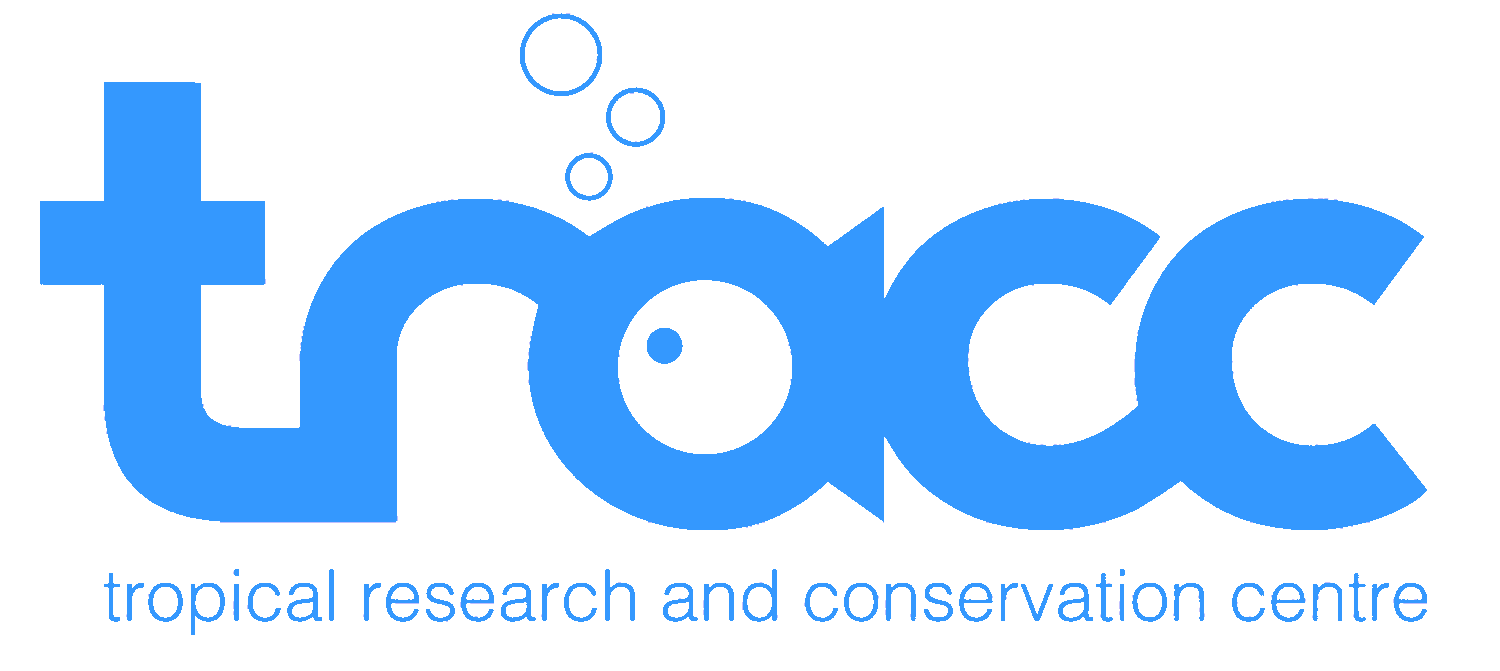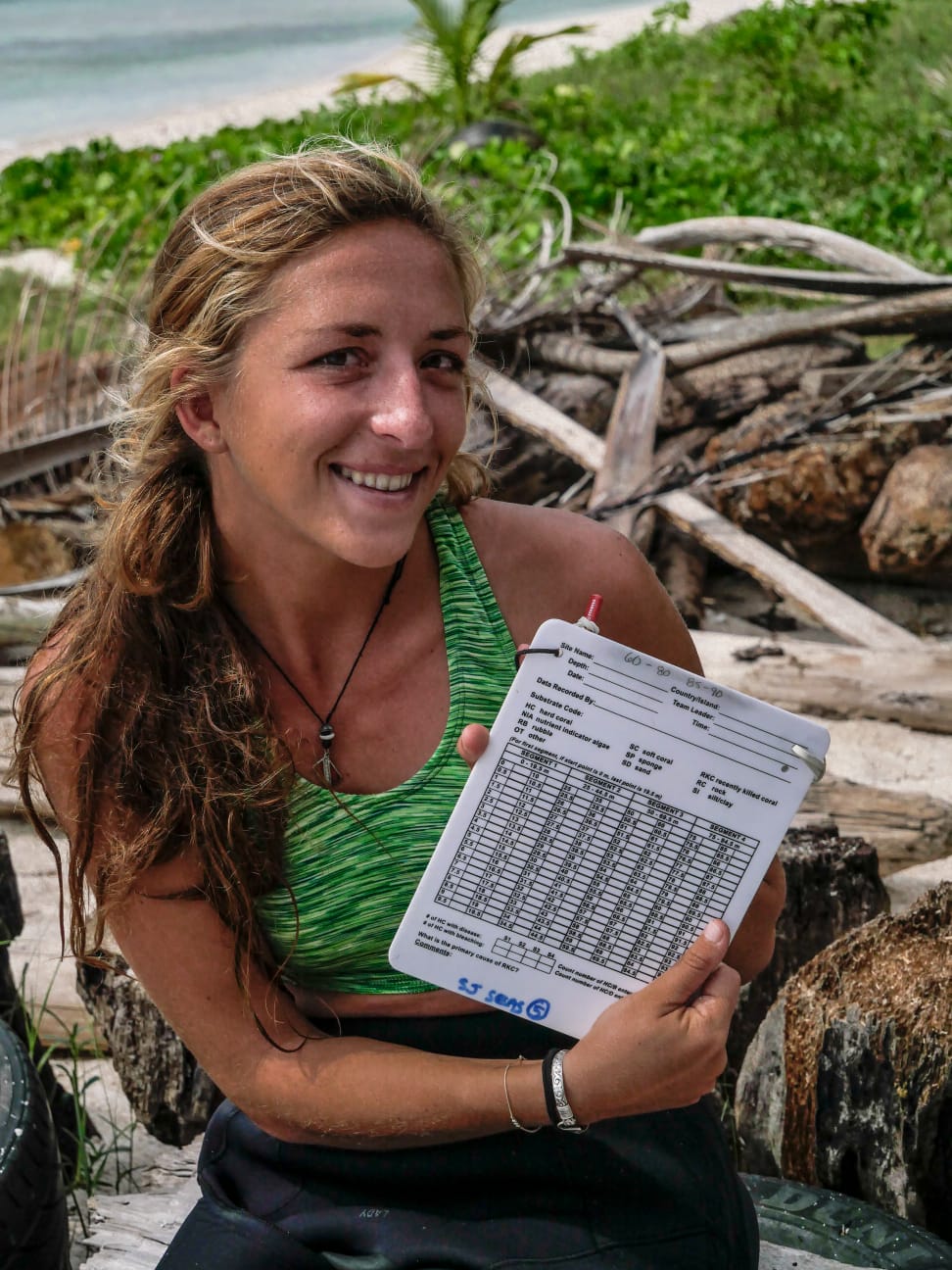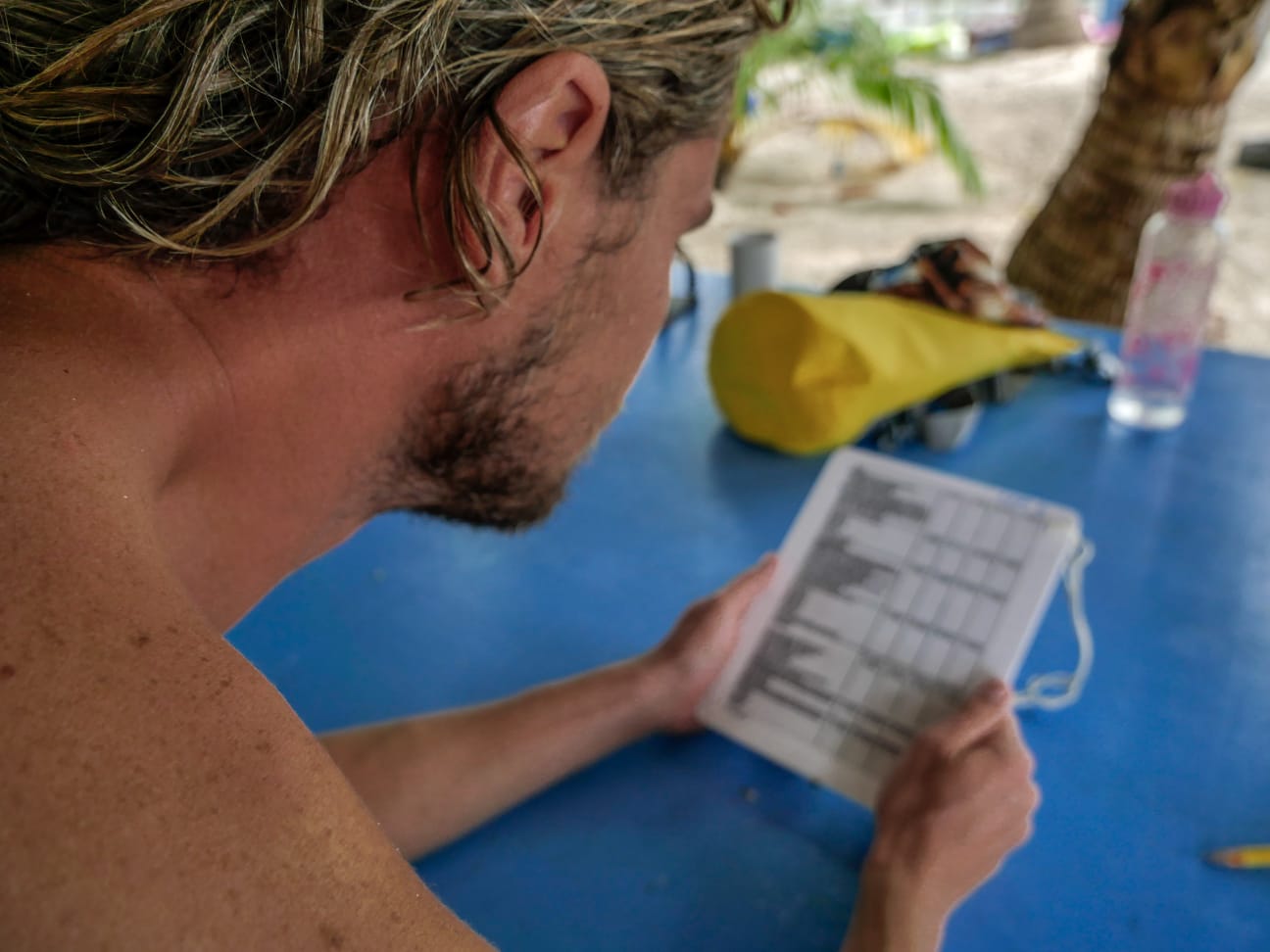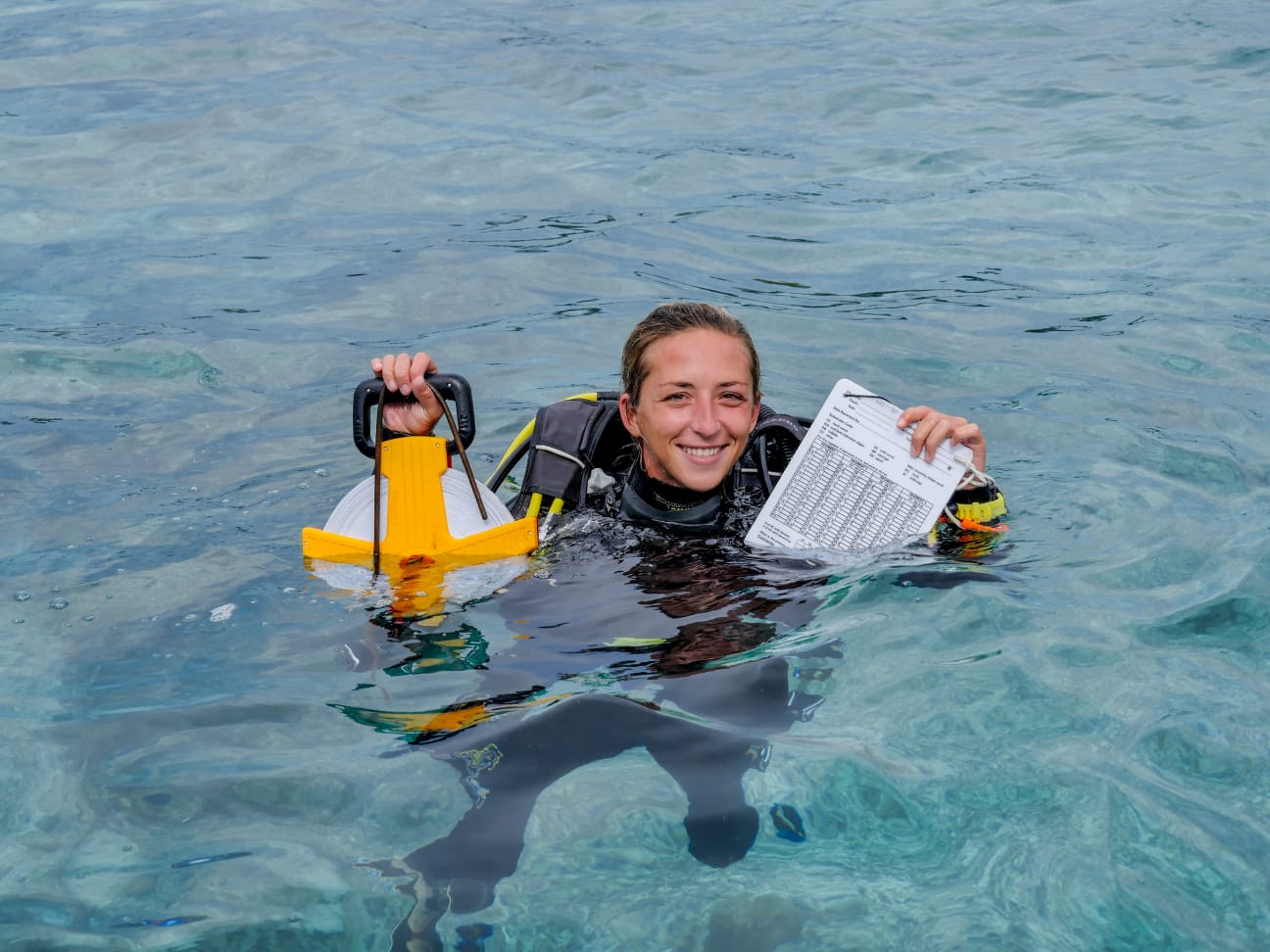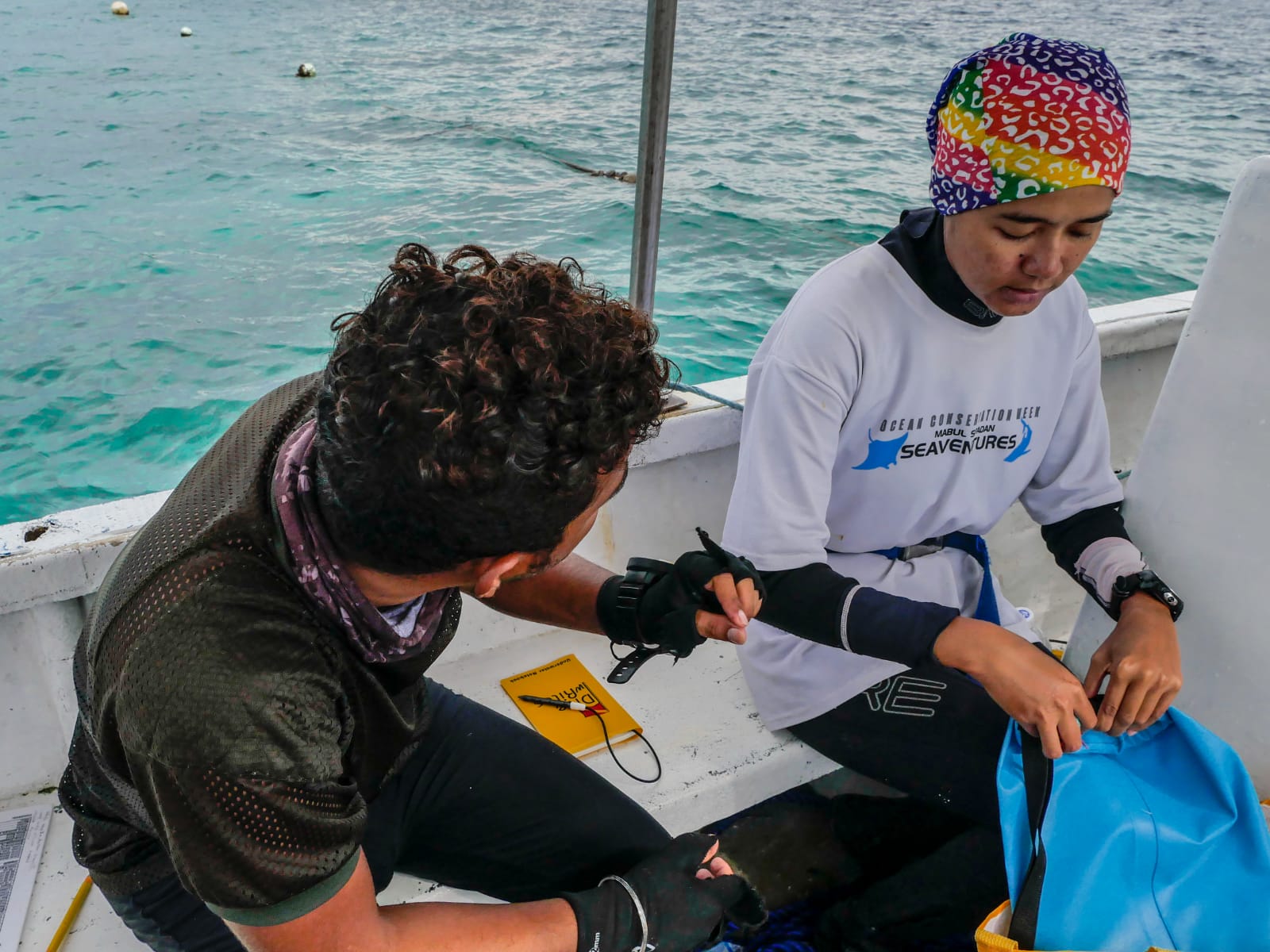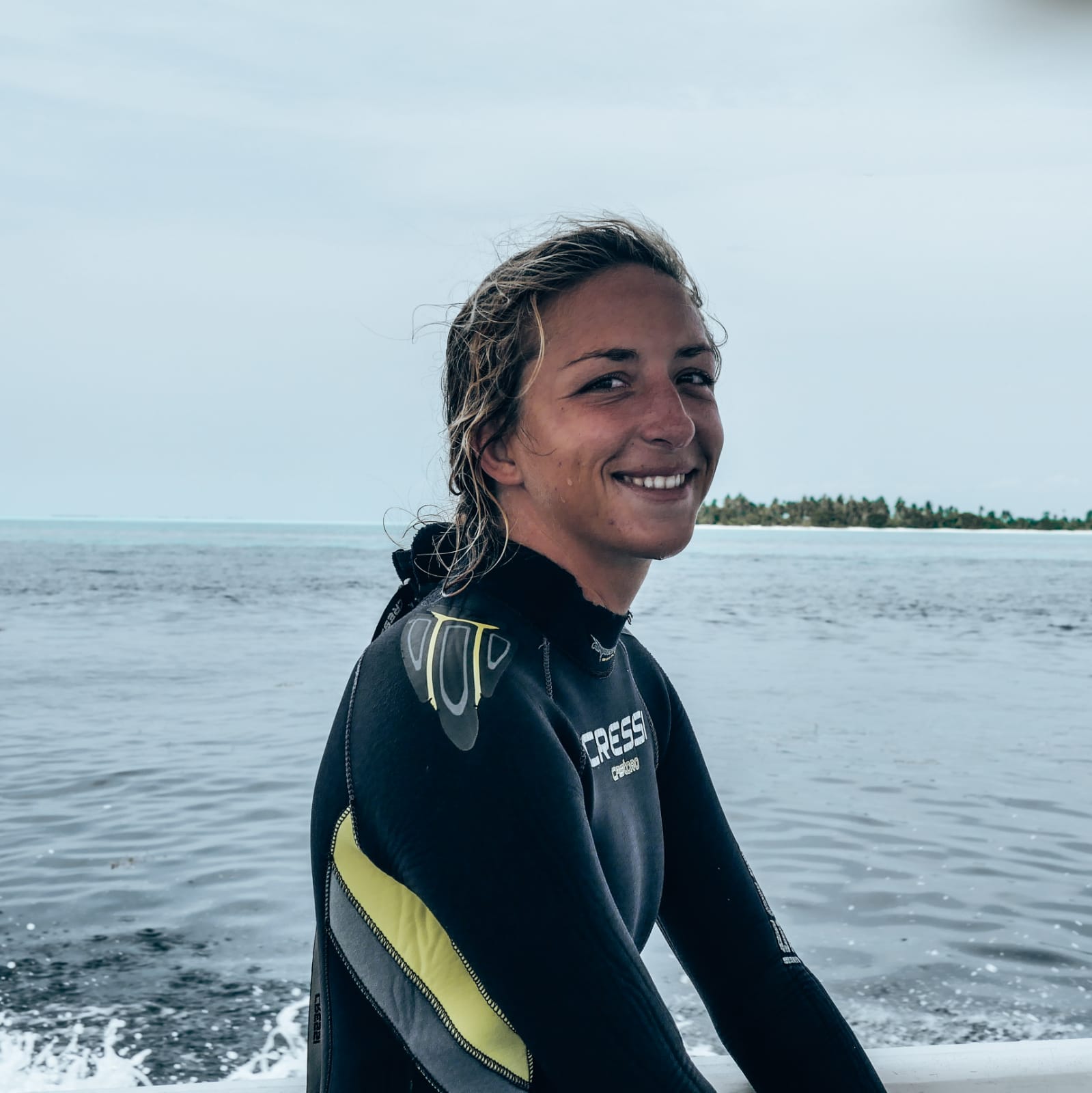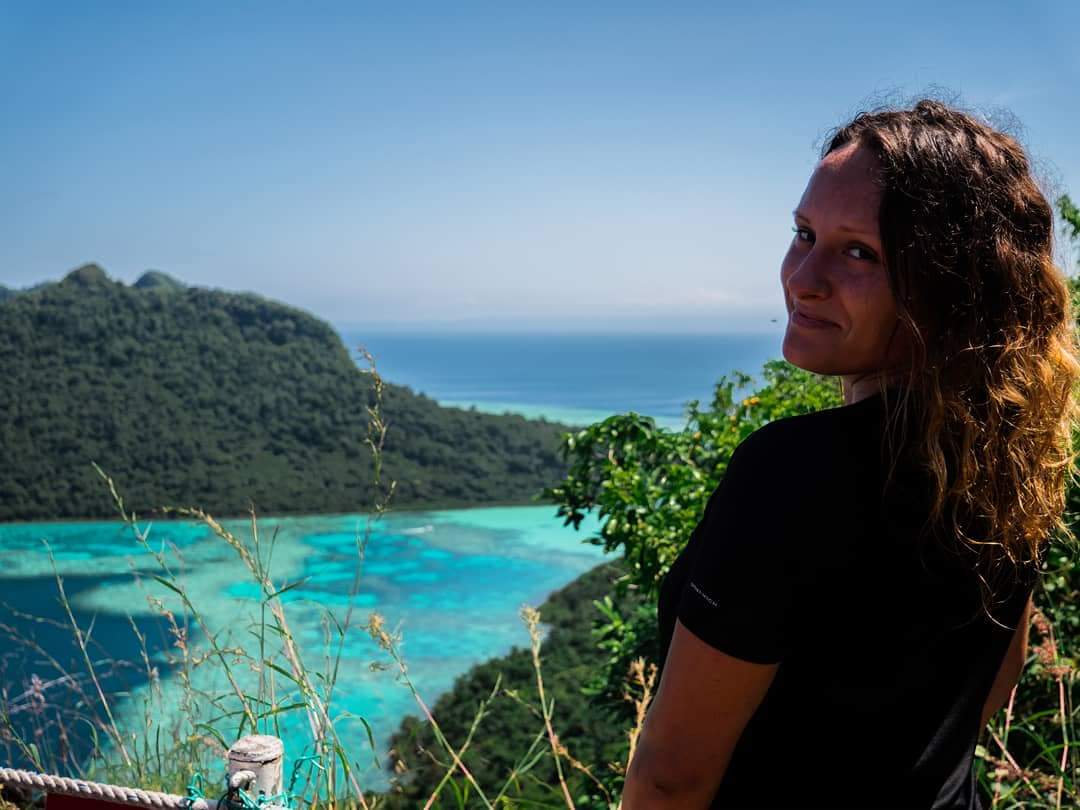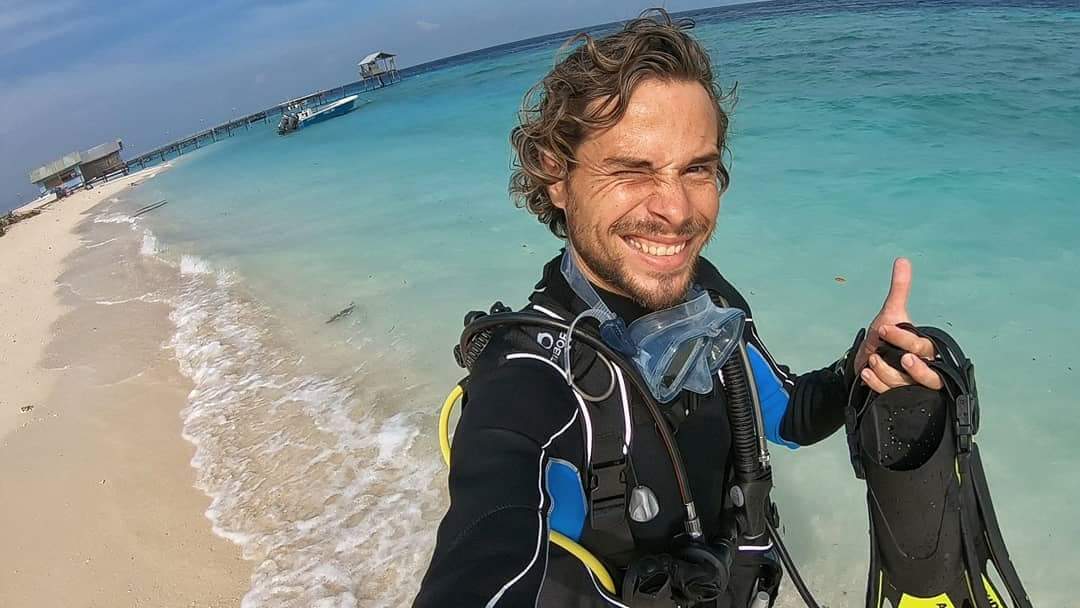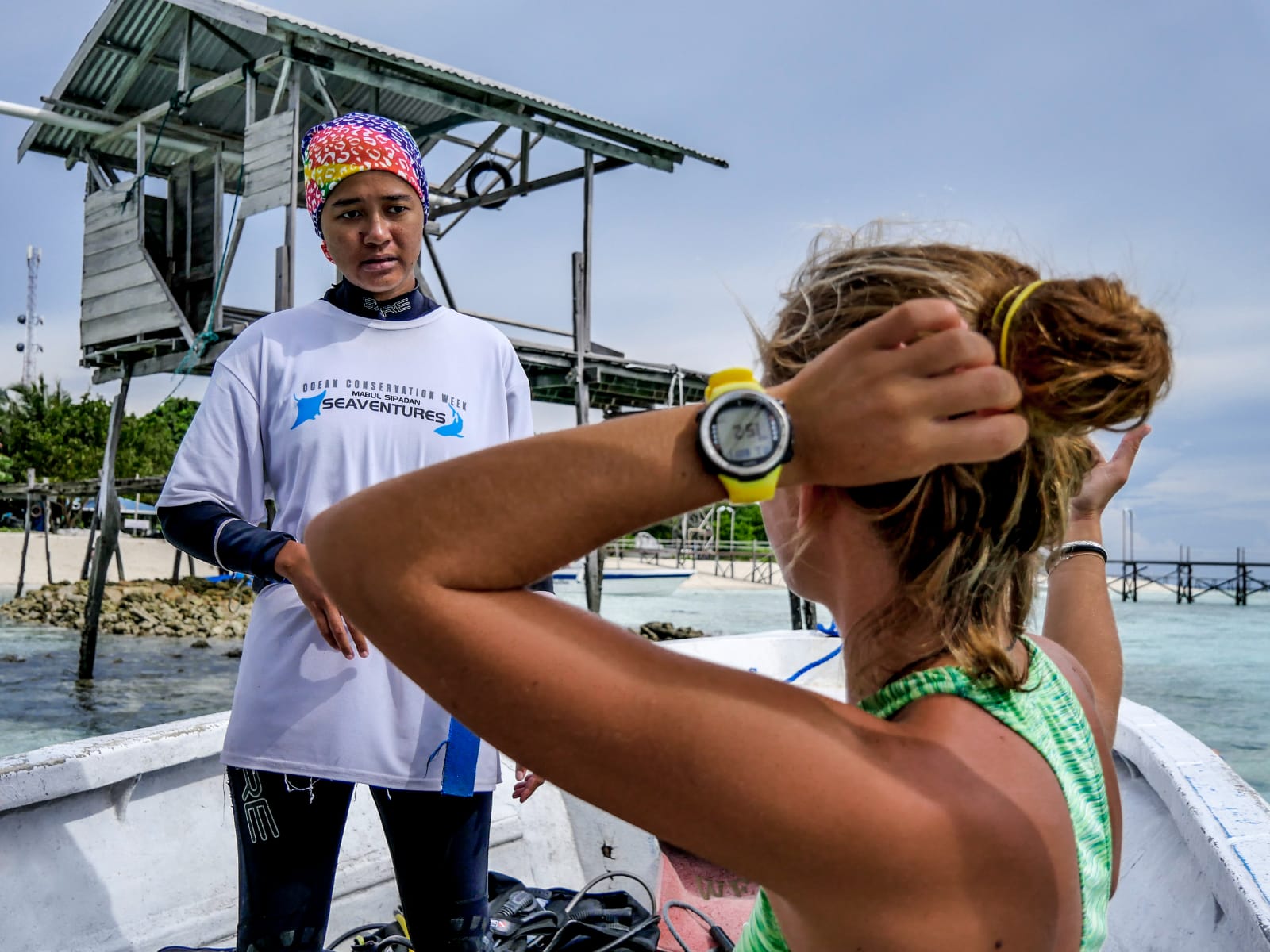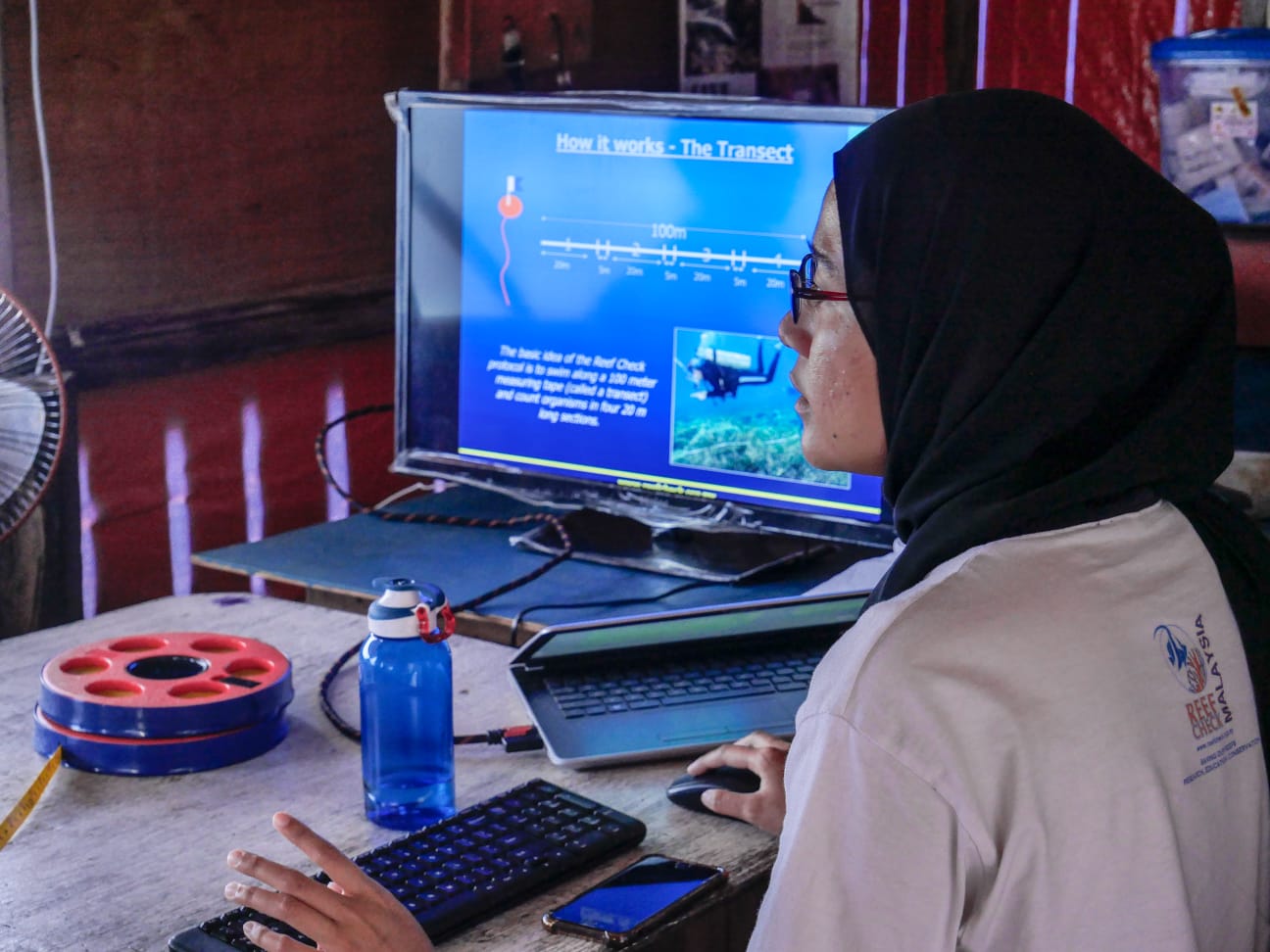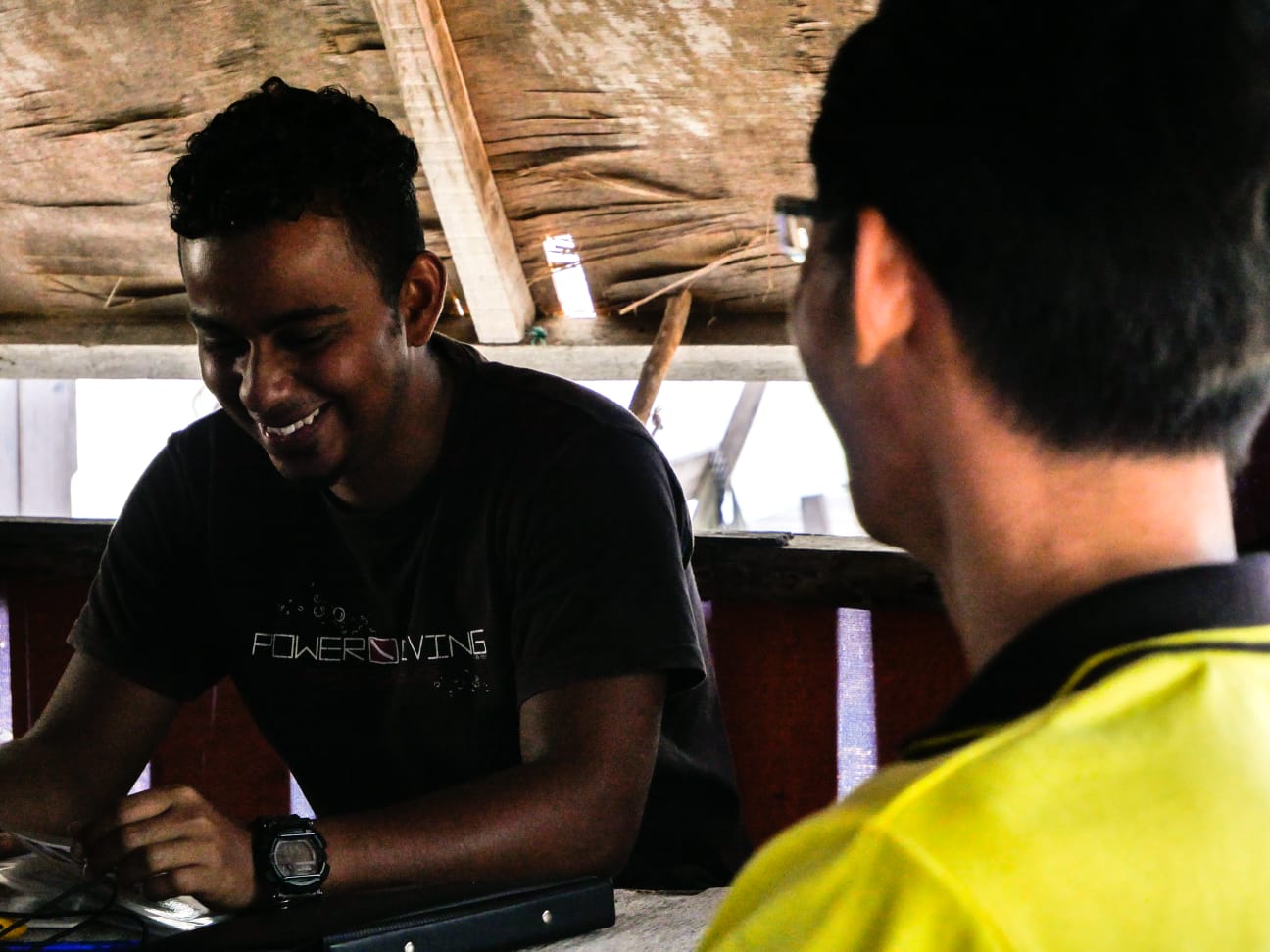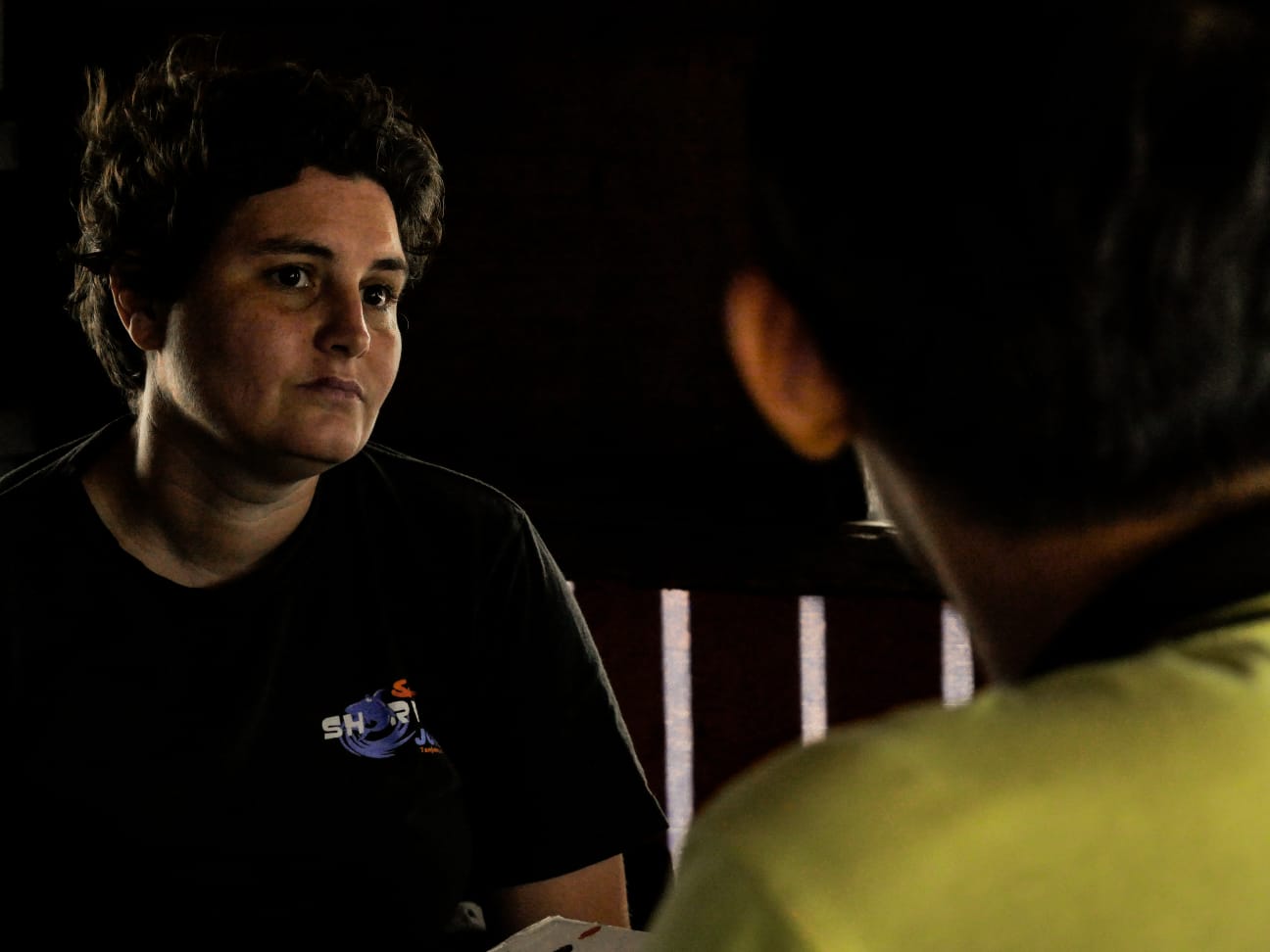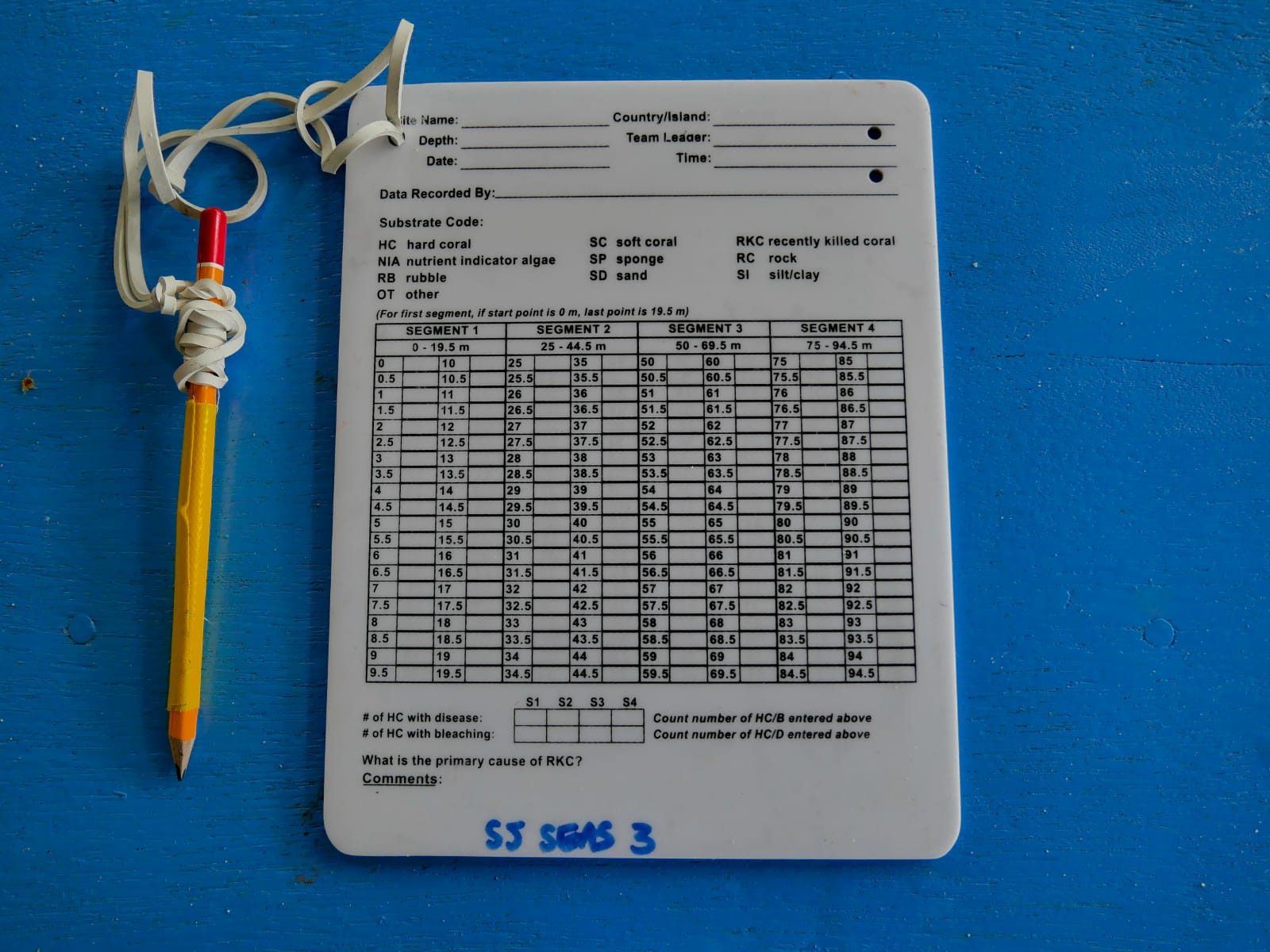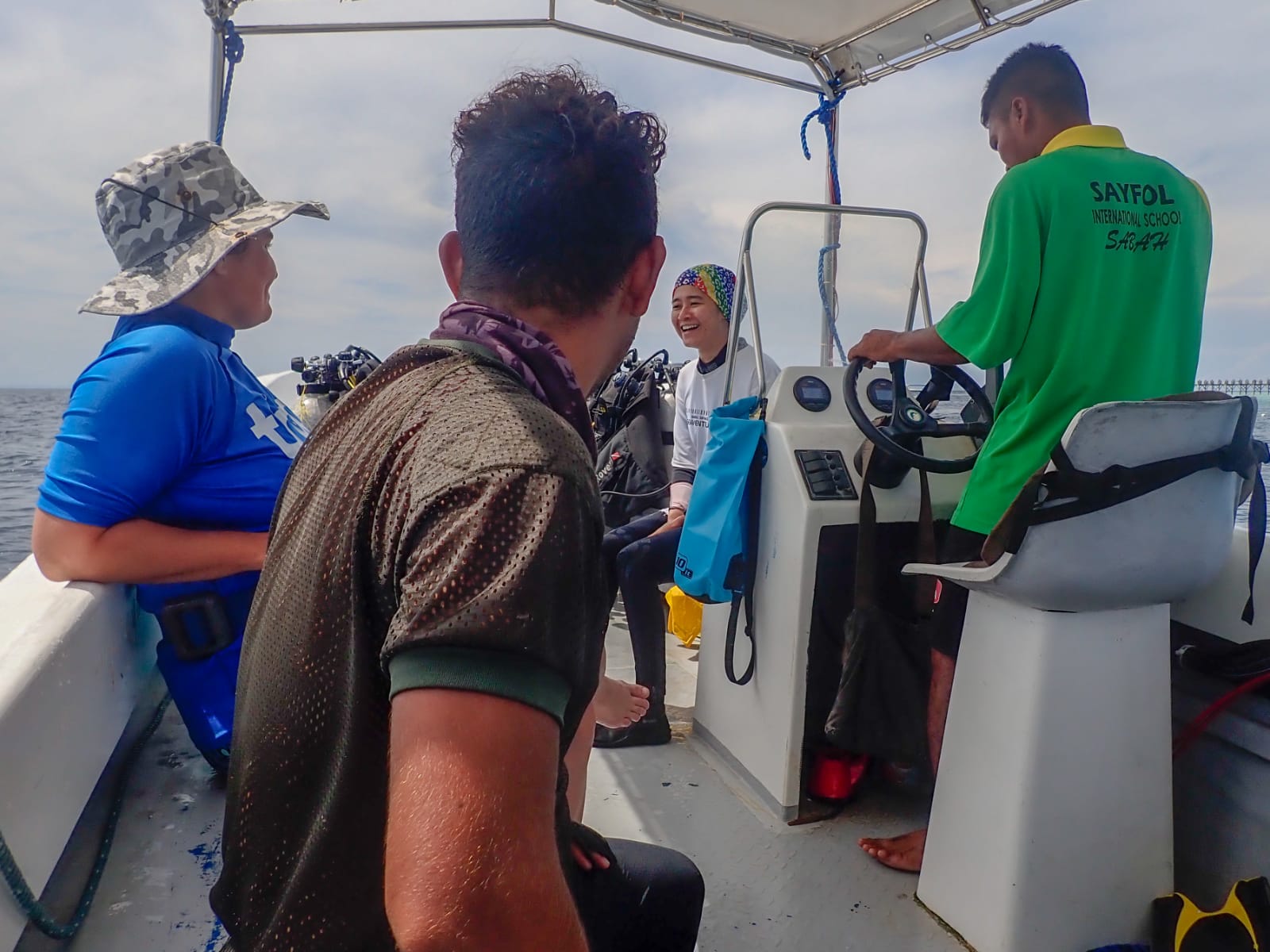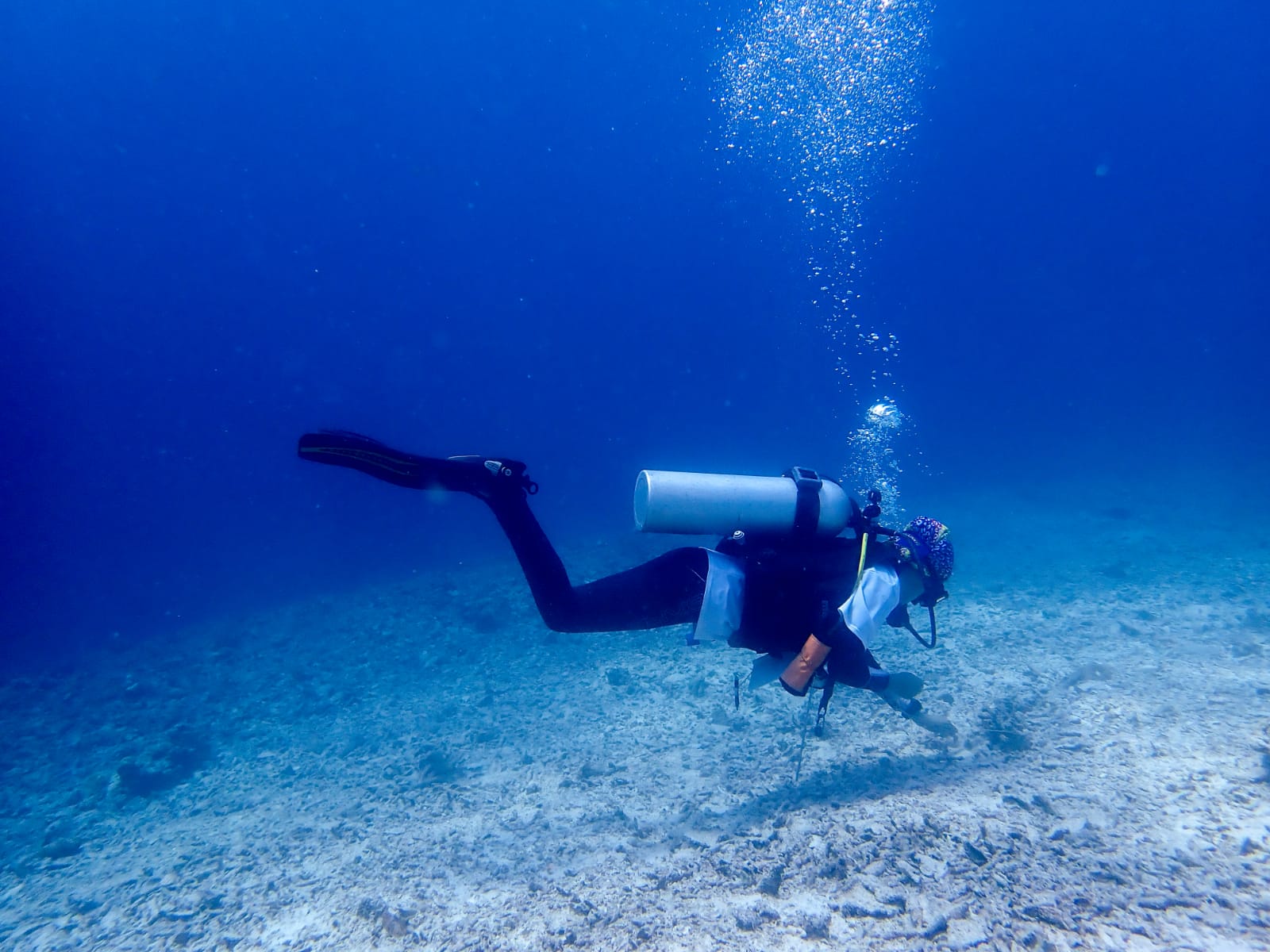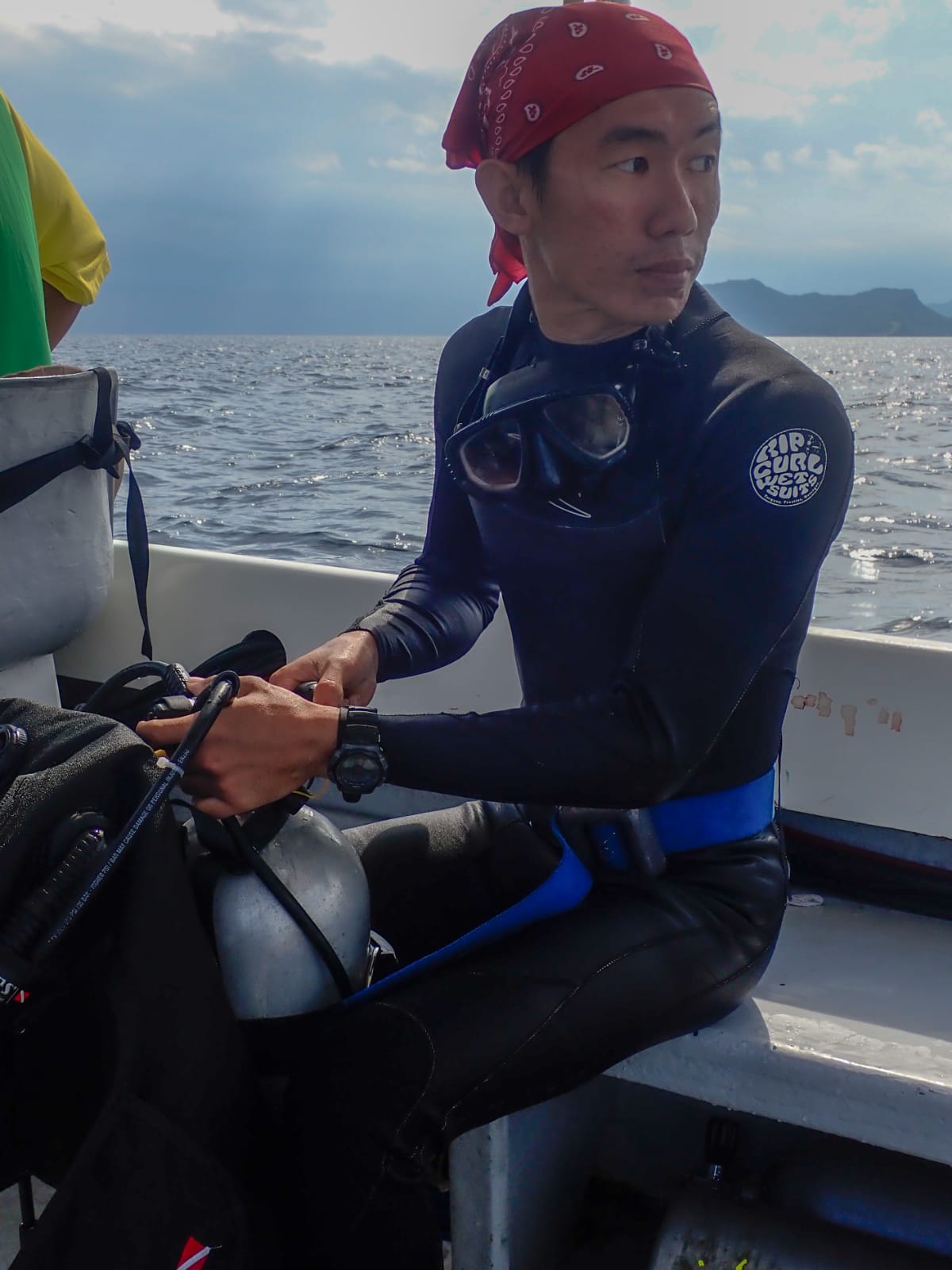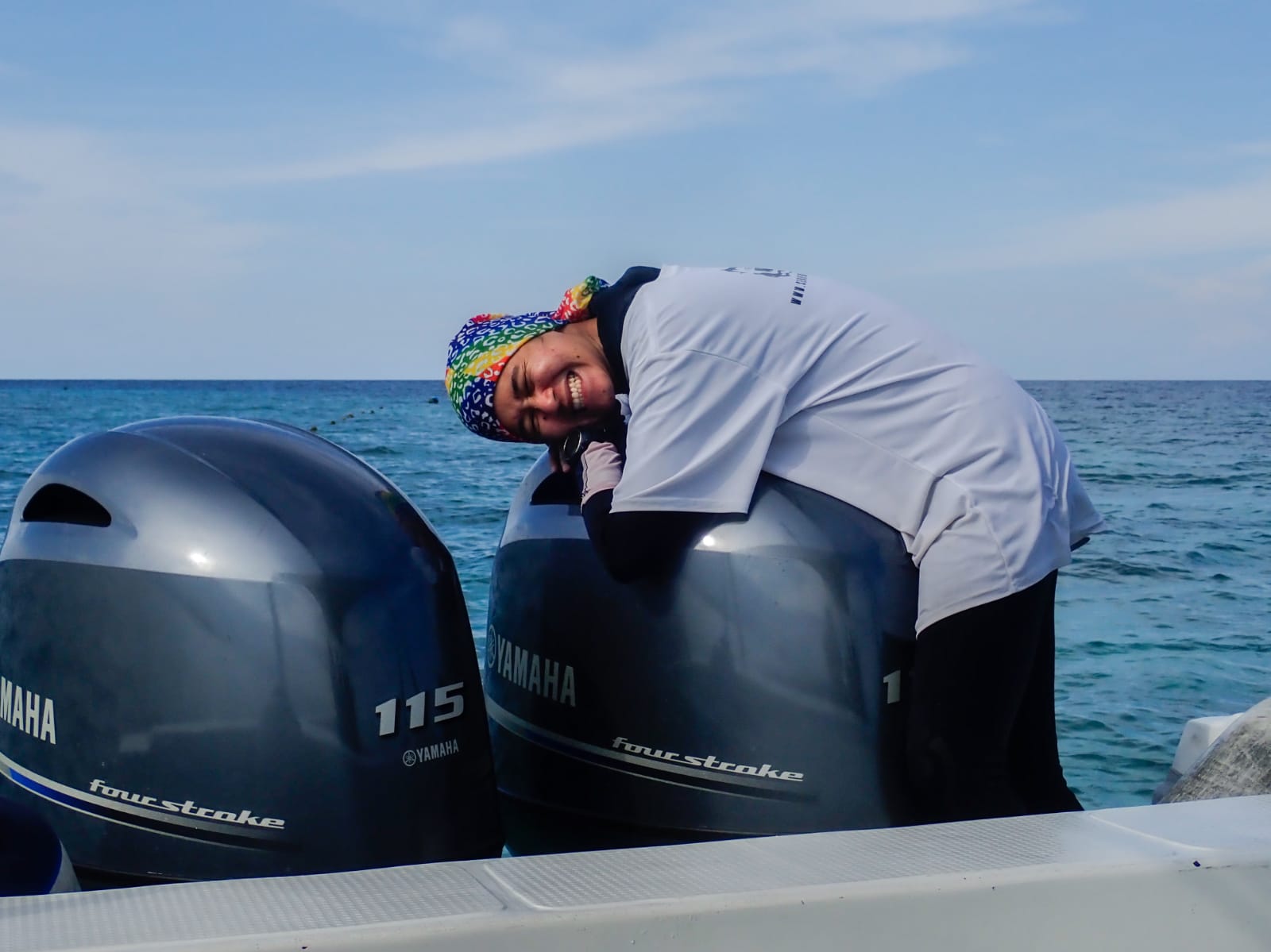REEF CHECK TRAINING!
We have some exciting news… TRACC is now able to train volunteers on Reef Check surveys, enabling them to have a certification from Reef Check, and be Eco Divers! This is very exciting for us, as we’ll be able to add to a global image of the state of the world’s reefs, as well helping us to track the impact of our own restoration projects on Pom Pom.
So what is Reef Check?
Reef Check Malaysia is part of the world wide Reef Check network. Established in 1997 in the USA, Reef Check was founded by a group of scientists who developed a simple, rapid method of surveying coral reefs. Reef Check Malaysia (RCM) has established an annual survey programme to assess the health of coral reefs around Malaysia.
In the last eleven years RCM has trained over 800 divers to conduct reef surveys at over 150 permanent monitoring sites on coral reefs at different sites around East and Peninsular Malaysia.
The survey sites around Sabah, 2017.
So what’s it all about?
Reef Check surveys are based on the philosophy of “Indicator Species”.
These are marine organisms that:
· are widely distributed on coral reefs
· are easy for non-scientists to identify
· provide information about the health of a coral reef
The species that our Reef Check divers look for are shown in the picture of the survey slate below:
As you can see, there are several different fish and invertebrates that our Reef Check divers need to be able to identify! Not to worry, we have some amazing Reef Check trainers at camp, who will teach you how to identify each individual species, and you’ll have the chance to do a “mock survey” to make sure you’re confident in your ID skills before going on your first Reef Check survey!
Using a standardized methodology, data from surveys in different sites can be compared over time, whether it be on an island or international basis. By surveying reefs on a regular basis, changes can be highlighted early before they become problems. This gives us the opportunity to intervene to try to reverse the change before permanent damage is done to the reef. The figure below shows the basic methodology that our Reef Check divers follow:
First steps at TRACC
We had the opportunity recently to have 3 lucky members of staff take part in Reef Check Trainer training- this would allow them to teach volunteers how to carry out underwater surveys on our island.
Once they were trained and ready to go, the first three students were picked to gain their Reef Check certification! They were Taylor; one of our amazing instructors, and Anaïs and Loïc; two fantastic long-term volunteers and two of our ARC Reef Masters.
The training consisted of a few lectures to give the background to Reef Check, and teach about the different aspects that the surveys look for:
· Fish species
· Invertebrate species
· Different substrates
· Reef Check method & impacts
After the lectures, they were taken out on “pointy dives”, where each item that is on the survey is found and pointed out, so that everyone has a clearer understanding of what they’re looking for, and given an idea of where the species can be found.
They were also taken on a mock survey dive, to get in some practice before a real Reef Check survey, and to reinforce the methods they had learnt over the past few days.
After their training was complete and they were certified (hooray!), I asked them some questions about their experience:
Q: What is your background in science? How did you find the scientific side of the training?
T: I have a degree in Environmental Science, with an emphasis on conservation biology. So as much as I have a strong background in science, I did learn things too; for example, identifying the different types of substrates was harder than expected.
A: I quit science when I was 17 and choose to specialise in business and marketing. So I found the lectures to be intense. Fortunately, we have been practicing our fish and invertebrate ID skills the last 3 months at TRACC! But the substrates lecture was for me was also the most challenging one.
L: I am an engineer, so I do have a science background, even if it is far from marine biology! I really enjoyed the class and found it challenging.
Q: What did you think of the whole experience? What was your favourite part?
A: The whole experience with our instructors was amazing, we are truly happy and grateful to now be able to collect data for Reef Check.
L: The best part was carrying out the survey. It is very different from any diving we have done before. As an eco diver, you need to have specifics skills like identification or the capacity to stay focused and be able to record data even if you are upside down! I am sure that the training will help me to become a better and more aware diver. Besides, it was fascinating to learn why we count some species and not others; understanding what they reflect and what their absence or presence on a site means.
Q: Who would you recommend Reef Check training to?
A: The training can be completed by anyone. I don’t have a science background and I still was able to be certified. But be prepared! The training is intense for non science people!
You don't need to have a certain number of dives to start your eco diver training, but you still need to have a really good command of your buoyancy. So as soon as you think you have the diving skills required, go for it and if you are not sure ask your divemaster or instructor. They can also help you to improve your diving skills.
L: Also, you need to enjoy looking for things like invertebrates, because that's what you will be doing in the surveys!
Q: What will you do now that you’re an eco diver and Reef Check certified?
A & L: We will first participate in the surveys here at TRACC. And once we’ve moved on, we want to help other Reef Check Dive centres and take part in their surveys too. When you are a Reef Check Eco diver, you can join any survey in the Indo Pacific! To find opportunities, you just need to check their website… there are plenty! But first, we will spread the message among our families and friends.
Here at TRACC, we are so excited for this new opportunity for our volunteers; helping them to improve their ID skills, their buoyancy, and most importantly, helping a global community to monitor the world’s precious reefs!
We also want to thank Reef Check Malaysia and our wonderful Instructor Trainer Nadhirah for this amazing opportunity!!!
Words by: Helena French
Images by: Anais Lafuente
